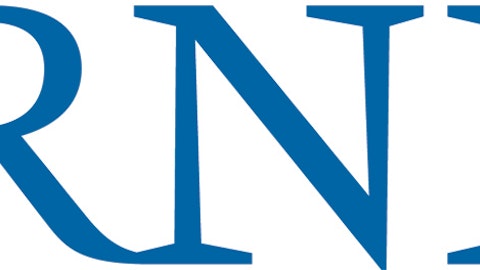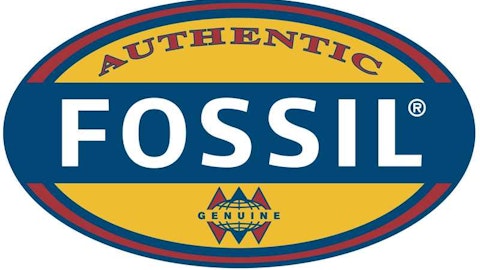
Strong Foundations, Weak Buildings
Aubrey McClendon helped to build Chesapeake Energy since its 1989 founding. He was an aggressive acquirer of land for drilling. He was also happily willing to try the new drilling methods that helped usher in the natural gas boom in the United States. That resource boom, however, has been part of his downfall.
With natural gas prices falling to historic lows, Chesapeake’s profitability started to crumble. Part of the problem was McClendon’s focus on gas, which made up the vast majority of the company’s revenues. When others had shifted to more profitable oil drilling, Chesapeake remained focused on gas.
As the business got more difficult, questions began to arise about McClendon’s personal dealings as they involved company business. This was a massive drag on the company on top of the natural gas price drop. Along the way, activist investor Carl Icahn stepped in. Not one to accept things as they are, he quickly started to jockey for control of the company’s board.
Ousting the Founder
With the media scandal and a government inquiry into McClendon’s personal activities, it probably wasn’t hard to convince investors that some changes were needed. At first that was just getting McClendon booted from the board president position, which also included Icahn gaining control of the board. Now, with McClendon’s imminent departure, Icahn has removed what many believed to be a notable distraction.
Sometimes removing a founder makes a lot of sense and works out well for everyone. Other times, it doesn’t work out as planned. For example, Apple Inc. (NASDAQ:AAPL) famously ousted Steve Jobs, with the board and CEO taking the company down an ill-fated path. Indeed, the journey into the commodity personal computer business almost brought the company to ruin.
Jobs left and formed NeXT in 1985 to make workstations for schools, later shifting to operating systems. While NeXT wasn’t a massive success, Apple’s performance was pretty bad and the company eventually acquired NeXT, about a decade after its founding, to bring Jobs back aboard. Apple’s performance since that 1996 acquisition has been nothing short of phenomenal, even taking the recent price decline into consideration. Clearly, removing Jobs didn’t work out too well.
In other instances, the founders depart, but things don’t get any better no matter how hard everyone tries. Yahoo! Inc. (NASDAQ:YHOO) would be a good example of that. The company was created by Jerry Yang and David Filo in the mid-1990s and was the first big Internet search tool (it was actually an index of sorts before it was a search tool). However, with the emergence of Google Inc (NASDAQ:GOOG), the company found itself quickly playing catch up.
While it saw initial success, the tech bust in 2000 took a big toll on the company’s stock price. It has languished well below its highs of over $100 per share since that time. Its business, meanwhile, has similarly struggled, leading to the replacement of Jerry Yang as CEO in early 2009. There have been a succession of high profile CEO flops since that time and it’s too soon to tell if the most recent boss, Marissa Mayer, brought in to much fanfare from Google, can turn things around. Luckily a prescient investment in China’s Alibaba has presented the company with a financial windfall that should give it plenty of time to work on righting the ship.
A Lot of Work
Turning things around at Chesapeake is no small task. Indeed, McClendon leaves a company in transition. With a large debt load, the company has been selling assets to pay down its obligations. More asset sales are on the way, too, which will require a great deal of attention from the new CEO. Such sales will be vital to the company’s transition from a land acquirer to an oil and gas driller.
In fact, that shift will, perhaps, be the biggest challenge. It will, effectively, require changing the basis on which the company was founded and built. That’s a tall order since large companies are usually more like slow moving ships than agile race cars. It may even be impossible. McClendon built the company and instilled it with a way of doing business, a personality of sorts, that may be difficult to get rid of.
What to do?
While the transition is currently amicable, with both sides saying very nice things about the other, that doesn’t mean the company will thrive. Having an activist board member may help, but that hasn’t worked out too well at Sears Holdings Corporation (NASDAQ:SHLD), which continues to struggle with its core problems. Like Sears, Chesapeake still has notable core problems to deal with.
Note, too, that the shares remain well off of their highs. While the quick bounce on the news of McClendon’s departure was notable, there’s a lot of work to be done and future share price gains won’t be as easy to come by. Investors would probably be better off focusing on other companies than hoping for a big turnaround at Chesapeake.
Yours,

The article Icahn Wins! What About Shareholders? originally appeared on Fool.com and is written by Reuben Gregg Brewer.
Copyright © 1995 – 2013 The Motley Fool, LLC. All rights reserved. The Motley Fool has a disclosure policy.





